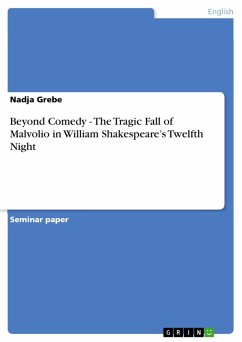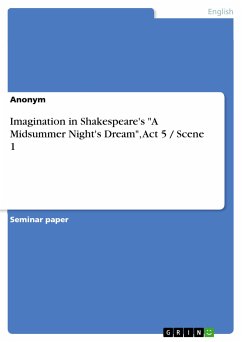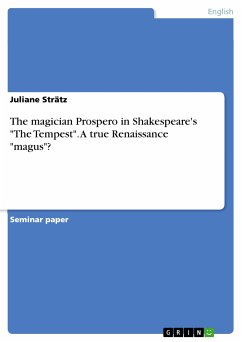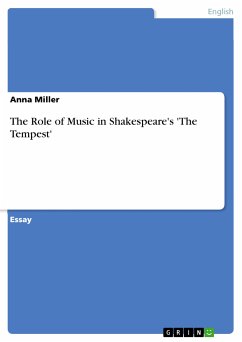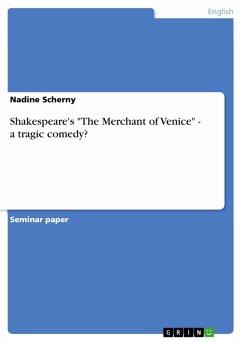
Shakespeare's "The Merchant of Venice" - a tragic comedy? (eBook, PDF)

PAYBACK Punkte
0 °P sammeln!
Seminar paper from the year 2005 in the subject English Language and Literature Studies - Literature, grade: 2,3, University of Trier, course: Shakespeare's "The Taming of the Shrew" and "The Merchant of Venice", language: English, abstract: It has often been said that one can measure the quality of a dramatic piece by the feedback it evokes; the more the reactions and opinions diverge the better the play. This definitely holds true for The Merchant of Venice. Hardly any other dramatic piece has experienced so many diverse receptions during four hundred years after its publication, as the foll...
Seminar paper from the year 2005 in the subject English Language and Literature Studies - Literature, grade: 2,3, University of Trier, course: Shakespeare's "The Taming of the Shrew" and "The Merchant of Venice", language: English, abstract: It has often been said that one can measure the quality of a dramatic piece by the feedback it evokes; the more the reactions and opinions diverge the better the play. This definitely holds true for The Merchant of Venice. Hardly any other dramatic piece has experienced so many diverse receptions during four hundred years after its publication, as the following comments of two different authors show: Indeed, seen from any angle, The Merchant of Venice is not a very funny play, and we might gain a lot if, for the moment, we ceased to be bullied by its inclusion in the comedies. (Graham Midgely, qtd. in Holderness: 23) No other Shakespearean comedy before All's Well That Ends Well (1602) and Measure for Measure (1604), perhaps no other Shakespearean comedy at all, has excited comparable controversy. (Walter Cohen: 47) Although the original title of the play, The Most Excellent Historie of the Merchant of Venice (first print 1600), suggested it to be a history play, it had been labelled a comedy until the 18th century due to its happy ending and still today the drama can be found in several reference works under the entry of 'comedy'. In the 19th century then it was re-interpreted as tragedy, whereas a parallel tradition put the main stress on the fairy tale elements in the piece. The perception of the play in the second half of the 20th century led, for obvious reasons from World War II, to the classification as 'problem play' (Schülting: 135). This paper shall try to solve the problem of assigning TMoV to a specific dramatic category by firstly giving an insight as to what criteria constitute different genres. In a second part, the plot structure will be analysed in order to illustrate that TMoV can indeed be seen as a mixture of different genres, but also to show the weaknesses of some arguments that are provided with the intention of forcing TMoV into certain schemes. The aim of a third section is to investigate the position of the Jew and Shylock, because he seems to be the key character in the reading of TMoV, as the multitude of interpretations of his role in the play demonstrate.
Dieser Download kann aus rechtlichen Gründen nur mit Rechnungsadresse in A, B, BG, CY, CZ, D, DK, EW, E, FIN, F, GR, HR, H, IRL, I, LT, L, LR, M, NL, PL, P, R, S, SLO, SK ausgeliefert werden.




